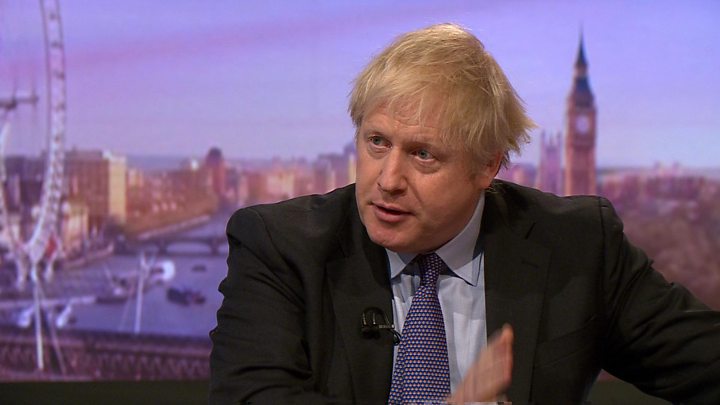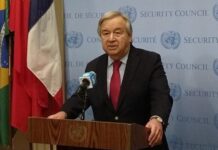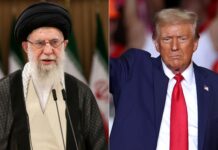LONDON: UK Prime Minister Boris Johnson said on Sunday that 74 people jailed for terror offences were released early, asserting that he will take steps to ensure that perpetrators of a violent or terrorist offence are not set free easily.
Johnsons’s remarks came a day after the London Bridge attack where a convicted terrorist killed two people before being shot dead by police.
The attacker, identified as Usman Khan, was a convicted terrorist who was jailed seven years ago over a plot to bomb the London Stock Exchange and to build a terrorist training camp on land owned by his family in Pakistan-occupied Kashmir.
Khan had also discussed staging a Mumbai-style attack on the UK Parliament. He went on a rampage on Friday and killed one man and a woman and injured three others before being shot by armed police officers. The Ministry of Justice launched an urgent review after the knife attack.
Prime minister Johnson told the BBC that 74 people jailed for terror offences and released early will have their licence conditions reviewed. He claimed that scrapping early release would have stopped Khan, but the Labour Party is blaming budget cuts for “missed chances to intervene”.
Johnson said it was “repulsive” that someone as “dangerous” as Khan could be released from prison after “only serving eight years” and blamed Khan’s release on legislation introduced under “a leftie government”.
“I’m a new prime minister. We take a different approach… I opposed [automatic release] both in 2003 and 2008, and now that I am prime minister I’m going to take steps to make sure that people are not released early when they commit… serious sexual, violent or terrorist offences,” he said.
Johnson said there are “probably about 74 people” who had been subject to early release following serious offences, adding that action had been taken immediately following London Bridge attack “to ensure there is no threat to the public,” the report said.
The Ministry of Justice confirmed the 74 figure following Johnson’s remarks.
The profile pieced together of Khan on the basis of his conviction on terrorism offences reveals a “serious jihadi” who was the youngest in a nine-member group of Islamist radicals jailed in 2012 for planning to bomb the London Stock Exchange (LSE) and the US Embassy as well as target VIPs such as Johnson, then the Mayor of London.
When he sentenced Khan in 2012, Justice Alan Wilkie had said that the future London Bridge attacker was on a “more long-term and sustained path” and would try to recruit and train “more serious and effective terrorists” to wreak mayhem. PTI







